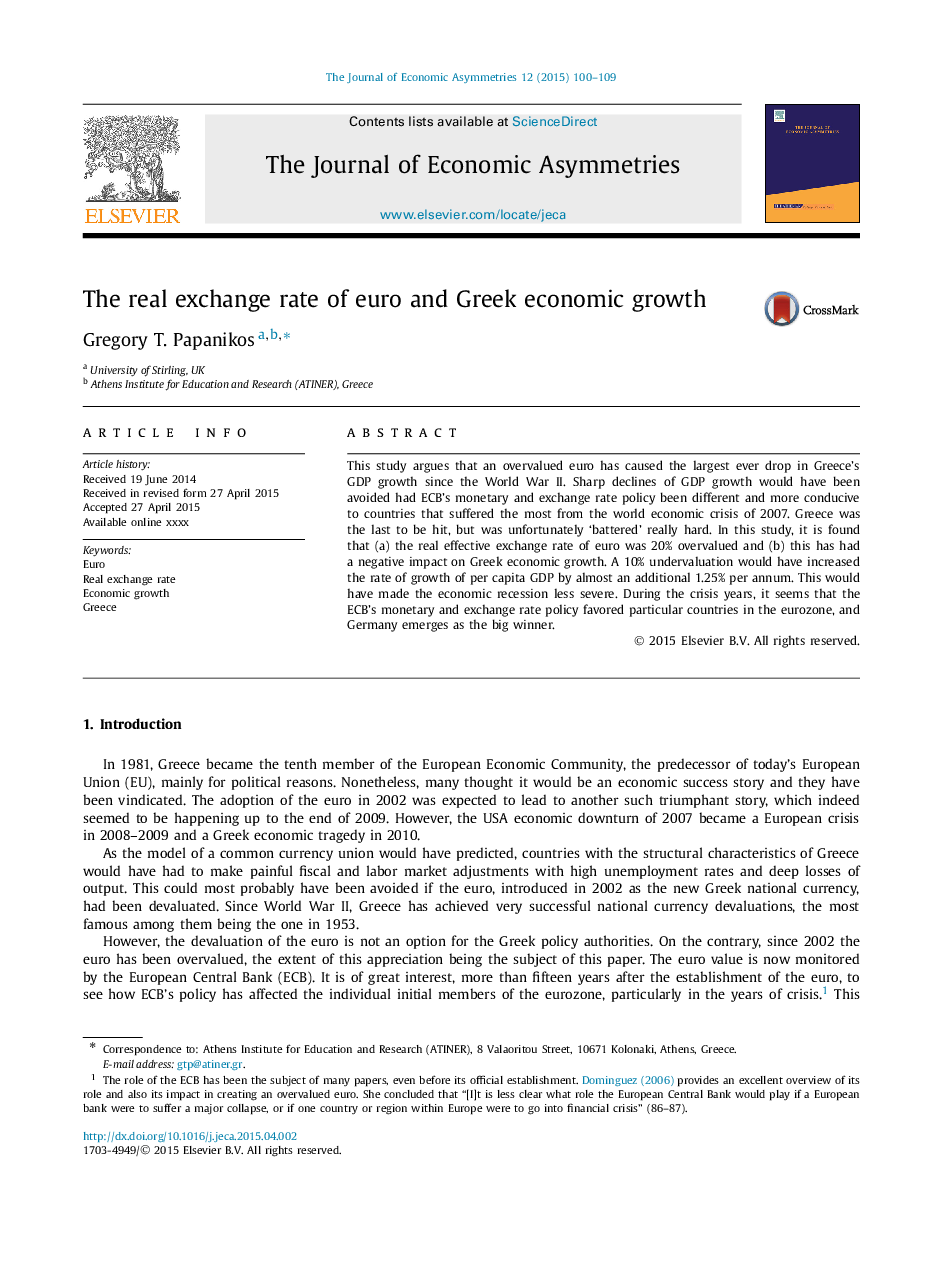| Article ID | Journal | Published Year | Pages | File Type |
|---|---|---|---|---|
| 5097693 | The Journal of Economic Asymmetries | 2015 | 10 Pages |
Abstract
This study argues that an overvalued euro has caused the largest ever drop in Greece's GDP growth since the World War II. Sharp declines of GDP growth would have been avoided had ECB's monetary and exchange rate policy been different and more conducive to countries that suffered the most from the world economic crisis of 2007. Greece was the last to be hit, but was unfortunately 'battered' really hard. In this study, it is found that (a) the real effective exchange rate of euro was 20% overvalued and (b) this has had a negative impact on Greek economic growth. A 10% undervaluation would have increased the rate of growth of per capita GDP by almost an additional 1.25% per annum. This would have made the economic recession less severe. During the crisis years, it seems that the ECB's monetary and exchange rate policy favored particular countries in the eurozone, and Germany emerges as the big winner.
Related Topics
Social Sciences and Humanities
Economics, Econometrics and Finance
Economics and Econometrics
Authors
Gregory T. Papanikos,
